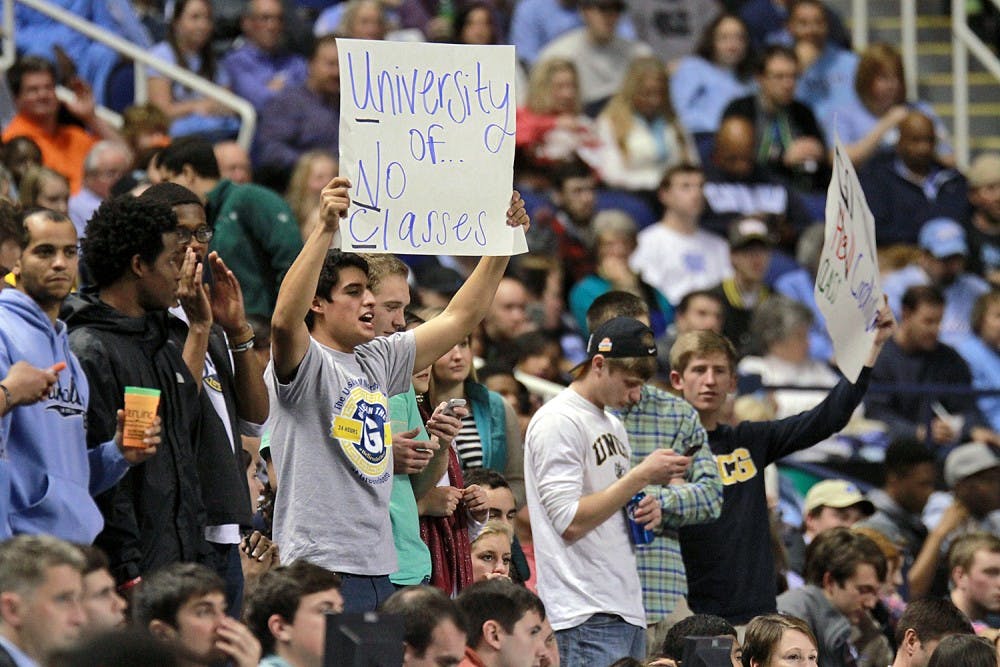It was 2010. The Tar Heels were fresh off a two-year-streak of bowl game appearances for the first time since 1998. Football was making a comeback under the watchful eye of coach Butch Davis, and the men’s basketball team had just won the 2009 NCAA tournament.
But that legacy changed when talk of fake classes and special treatment for athletes began to make waves.
The 2010 football scandal opened the floodgates to the now infamous academic-athletic scandal that made national headlines and led to a high profile investigation of the University’s athletic programs by the NCAA. The 2014 Wainstein Report confirmed that at least 3,100 UNC students took “paper classes,” and that 48 percent of those students were athletes.
“We should’ve been much quicker and much more forthcoming with information," said Holden Thorp, who was UNC’s chancellor during the initial stages of the scandal. "It turns out, when the Wainstein Report was done, there was more information, but not really anything new. The fact that we were slow and resistant in giving up certain information created the impression that we were hiding something.”
When reflecting on his decision to leave in 2013, Thorp said the choice he made looks better and better as time goes on. In a statement published by the University, he said he wanted to do what was best for UNC at the time. He said he thinks he could have continued on as chancellor, but that by leaving, former Chancellor Carol Folt was able to deal with the scandal without becoming the centerpiece of the public’s speculation.
“(Folt) never really became the focal point of the controversy,” Thorp said. “I think the way these things work is that, when the controversy starts on your watch, if you leave, you kind of take the suspense about the leadership away with you, and the next team can work to straighten out the remaining parts.”
Steve Kirschner, UNC's senior associate athletic director for communications, said it was frustrating reading all of the information regarding the scandal published by the media because the University was not allowed to comment on or attempt to correct reports in the midst of numerous investigations.
“From 2010 until the fall of 2017 — now we weren’t, for that entire time, in the midst of an NCAA investigation, but for much of it we were. That was very difficult to hear people talk about the school that I’ve worked for for 30 plus years, that I love, that I have a great deal of respect for. When you hear people make comments, sometimes snide comments, about things that happen here, that’s difficult,” Kirschner said.
Kirschner said although the University was unable to comment, and chose not to once it was able to, he thinks its ability to keep its reputation and credibility intact is a testament to UNC’s superior education and community.



